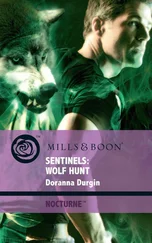Lobau. Since Archduke Charles did not know where the French were going to appear, he had arranged his army in pincer formation. If Napoleon attacked again in the north, Nordmann’s vanguard and Klenau’s VI Corps would have to contain him, backed up by Kolowrat’s III Corps, positioned a little behind. The principal force of the Austrian army in the north-east therefore manoeuvred to wedge in the right flank of the French. But if Napoleon advanced north-east, Archduke Charles would head him off, while Nordmann, Klenau and Kolowrat would come to cut off the French left flank.
In reality Napoleon was preparing to set foot on the Austrian bank by directing his army not towards the north, nor towards the north-east, but towards the east. The Austrians thought, wrongly, that an army would not be able to pass that way because it was too marshy. In addition, they thought they would have time to react should their enemy spring up unexpectedly there. Moreover, proceeding in this way, the French would be obliged to present their left flank to the Austrians before turning north to face them.
The French army spent the day of 2 July redeploying. Divisions crossed each other to reach their allotted places. The unbelievable mass of men, bathed in the noise of the clicking and heavy hammering of the tread of men and horses, was dizzying. The cuirassiers moved in serried lines, their horses practically biting the rumps of those in front. The convoys of artillery stretched out endlessly, leaving behind here and there a carriage with a broken axle. The columns streaked the meadows with black, and numerous officers orchestrated their progress, galloping in every direction. Couriers and aides-de-camp zigzagged between the regiments, continually transmitting orders: ‘Hurry up!’ ‘Make way for the Durutte Division!’ ‘Fall in behind General Pire’s cavalry!’ ‘Clear a path!’ Such was their number that, come the evening, not all the effectives had yet been able to reach their allotted position in the vast plan drawn up by the Emperor.
The soldiers tried to work out the significance of their position. They wanted to know if they would be amongst the first to mount the assault (heavy losses assured, but also better opportunities for promotion). Each time it was announced to a battalion that they would be placed at the front, some men rejoiced whilst others lamented. Each regiment was only a pawn on the chessboard, only just able to make out what was going on closest to them.
The evening brought a little cool air. The 18th of the Line was set up in a meadow. Everyone was preparing for the battle in his own way. Piquebois, his arm in a sling, devoured, all on his own, a roast chicken. Saber was seething. He had just delivered an impassioned speech to his company, evoking the glory of arms and the necessity of distinguishing oneself so as to be noticed by the Emperor. He had addressed these hundred men as though he were addressing a hundred thousand. He was practising for later on. At moments like this, he was no longer himself; ambition rendered him arrogant and inspired. He resembled a deranged gambler flinging coins on the table. He was ready, his company was ready, the army, the enemy, the world, the Emperor: they were all ready, what were they waiting for? Quick, a new map! Convinced that the war would propel him to the top of the hierarchy, he was
longing for the carnage. His mind, closed off from any idea of danger, was engaged in tactical calculations that were brilliant, certainly, but which interested only him. He marched to and fro, prisoner of the interminable wait, impatient to prove himself to everyone. But prove what? Why, everything, for goodness’ sake! Mar-gont had nicknamed him ‘Lieutenant Beethoven’. Like the composer, Saber had his symphonies playing constantly in his head and he avidly sought a stage and an audience.
As for Lefine, he was in quite another state of mind: he was fulminating.
‘When I think of all the time we took to build our cabin on the Isle of Lobau! And now they’ve thrown us out! Those overpaid pigs of the Guard are now sleeping there! It’s scandalous! Where is our June salary? The second of July is not June any more! Perhaps to the imperial accounting service, 2 July is 32 June. It’s daylight robbery! They’ll pay us after the battle, when there is no one left to receive it. That will make a nice economy, as usual! They force us to fight this war and on top of it all we have to do it on credit!’
He was talking, jabbering ... His flood of anxiety expressed itself in an interminable commentary all telling how he was the victim of the whole world.
Stretched out on the grass, Margont, having learnt to shut himself off in order to think, reflected on the investigation. He had just had an idea.
Lefine continued his peroration: ‘Do you realise that you get a salary that is almost eight times what mine is? But what would officers do without their sergeants, I ask you? Who would carry out their orders? Name me one single battle won by an army without sergeants? Hm? I’m waiting. We others, the noncommissioned officers, are the unloved of the army! Now without us, the—’
‘We have to get hold of some hunting dogs,’ Margont cut him off ‘Of course, dogs ... And fish also?’
‘We searched round about Teyhern’s house, but we could very easily not have noticed a hiding place, a subterranean shelter. Hunting dogs would be able to sniff it out! Let’s go and find
Jean-Quenin. A doctor will be useful. Then we will go and find Pa-gin so that he can escort us with some hussars.’
CHAPTER 27
MARGONT was worried about Relmyer and he gave a sigh of relief when he saw him coming out of Teyhern’s house. The young Austrian, irritated, hurried over. His drawn features gave the impression that he must have woken up several times a night, jumping at the least sound, real or imaginary.
‘What are you doing here? You have to leave at once!’
The three hounds, held on a lead by a farmer, were enough to disconcert him. Margont explained his idea.
‘If there is someone, pray heaven that we find him in time,’ Relmyer replied. ‘If there is nothing here, disappear immediately!’
The farmer let the dogs off the lead and they scattered. One ran towards the house while the others rapidly searched the area outside, their snouts to the ground, their tails wagging. Relmyer bombarded the farmer with questions. Did his animals understand what they were looking for, or were they going to pull out a hare? How long would they take to explore the area? How would they know when it was time to give up? Why was one of them barking? Could it not keep quiet?
The farmer was barely listening, merely grumbling from time to time, ‘My dogs know their business: if there is anyone here, they will unearth them.’ His age-weathered face brightened with pleasure, rejuvenating him. He was not worried about what these damned Frenchmen were up to, but he loved poaching. They were paying him and he was hunting with his hounds: that was enough for him.
Jean-Quenin Brémond did not like Relmyer. He was a part of the ever-growing category of those whose relations with the young hussar had been severed by his blade. However, he wanted to help Margont as best he could, even if his friend had not explained this affair except in the broadest outline. The medical officer therefore waited patiently, but stood at some distance from Relmyer. The scalpel never understands the sabre.
One of the animals disappeared into a mass of thickets, about sixty paces from the building. His two fellow hounds ran to join in, their paws flying over the ground. Everyone rushed over in their direction. Relmyer, ahead of everyone else, slowed down, and was overtaken. He had to be the first, but at the same time he was terrified of what they might find.
Читать дальше











